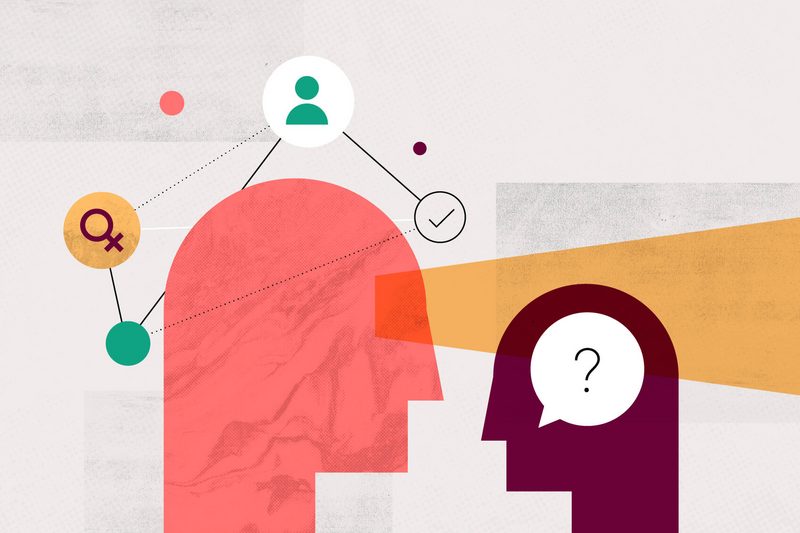
“Pull a string and I’ll tell you that he runs because he loves me”. We are products of our society, picked and packaged to their liking, and discarded if we’re not. There have always been unspoken rules that we are expected to follow. Laugh too loud, and you’ll be judged. State your opinion, and you’ll be laughed at, then silenced.
Over time, these biases become a part of us. They did for me. From ensuring everyone around me was okay, to constantly moulding myself to their emotions, I did it all. I accepted whatever a man told me, without question, until I broke, and then suddenly I was ungrateful, demanding, and too dramatic.
Women have been deemed hysterical and insane spinsters simply for having a mind of their own, because how dare they? Now, we’re just told that our symptoms are psychosomatic. Of course, they are. What else could they be? We never thought of studying the female body, “man” seemed to cover all human beings. Doctors and physicians often say, “It’s all in your head”. A bias towards males has always been prevalent in clinical studies, with the underlying assumption that what works for a man, must also work for a woman. The National Women’s Health Advisory Council declared medical misogyny an integral challenge in 2022.
Women are often misdiagnosed and do not get the treatment they deserve. Their voices in the clinics are overlooked. Weight loss is celebrated by society, even when it may be medically problematic.
Everything around us influences us, from the media we consume, and the words we hear, to what we observe around us. Our perception becomes our reality. British philosopher Heather Widdows observed how looking more youthful can make us seem “morally good”. In today’s visual and virtual world, we are often judged by our physical features rather than actions.
Each time we tell ourselves something, it becomes a part of us. Ultimately, we look for situations in our reality that confirm our beliefs, referred to as a confirmation bias. Our serial dependence causes us to perceive our current reality based on our past. Reflecting on these perceptions and how they affect our thinking and behaviour is the key to change. It begins with us.
Unconscious biases often reflect in our language and actions, affecting our decisions and worldviews. Other than healthcare settings, unconscious biases also affect the workplace. Decisions about recruitment, promotions, and everything in between are affected by our unconscious biases. Women have often been infantilised in “male-dominant” workplace settings, with comments like “she’s just a girl”. When they express their ideas or take up space in the office, they are seen as being “too aggressive”, and “demanding” or are questioned if it’s “that time of the month”.
We are constantly fighting for our place in society. I write this in rage and in solidarity with all the women who fought before me, those who continue to fight with me, and those who will fight after me.
For you, I leave you with this- if you think women are irrational, hormonal, and emotional, remember that we are what you made us.
Written by Advika Narang
Views: 7
